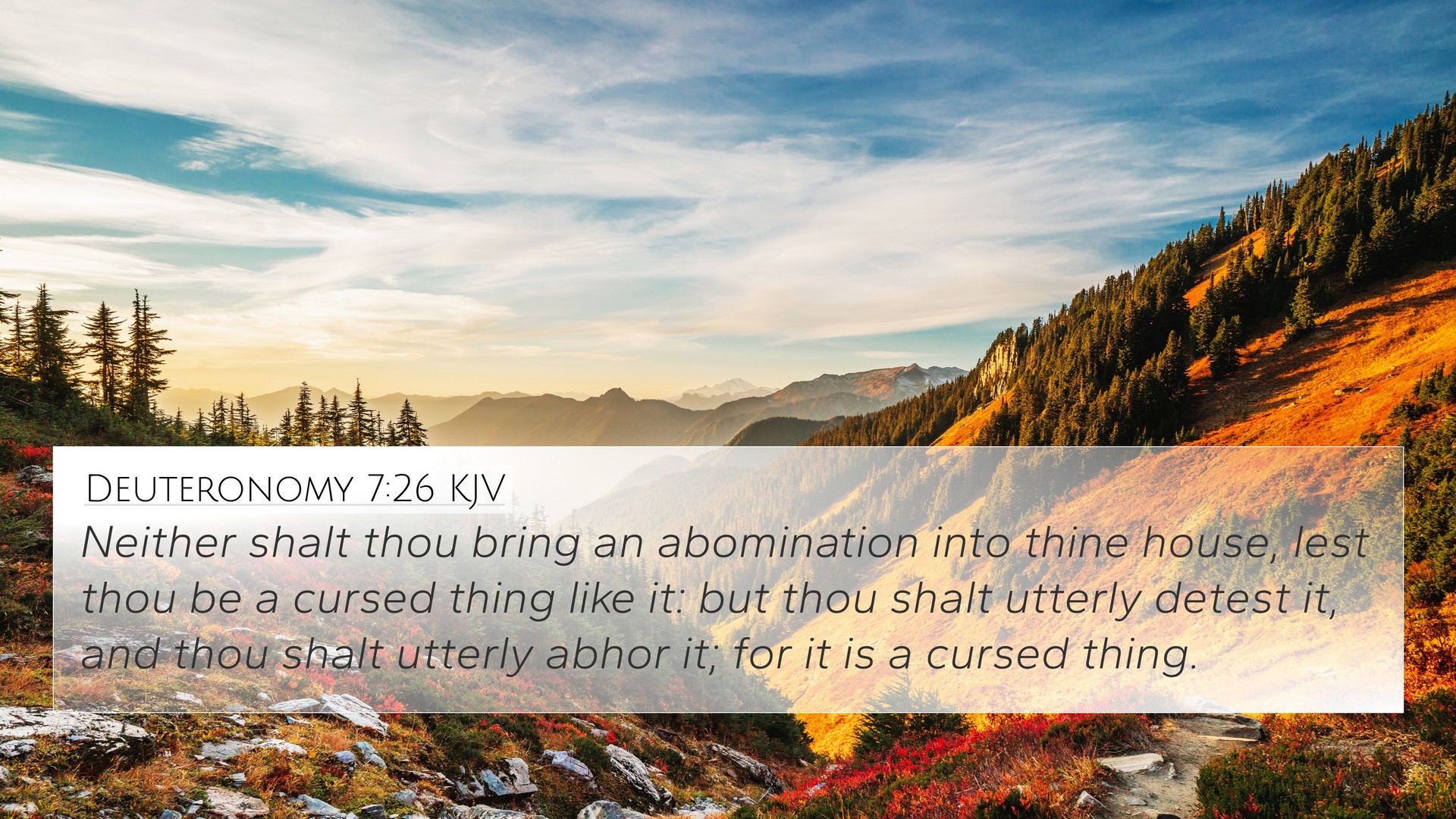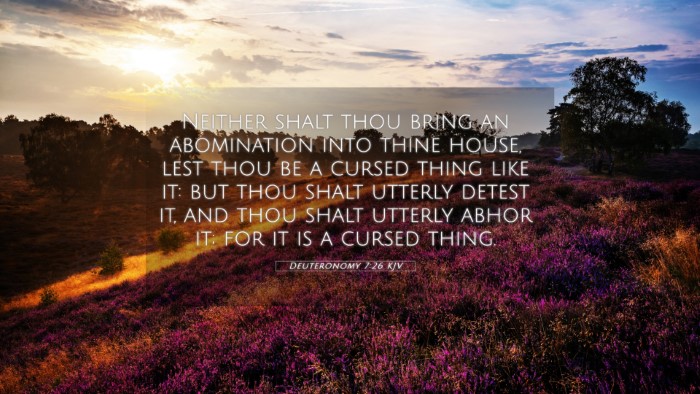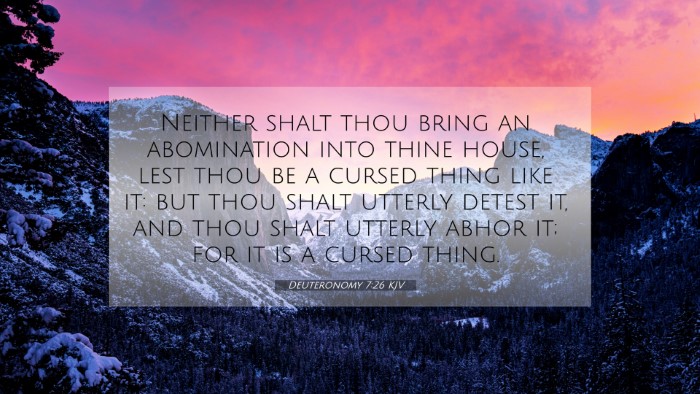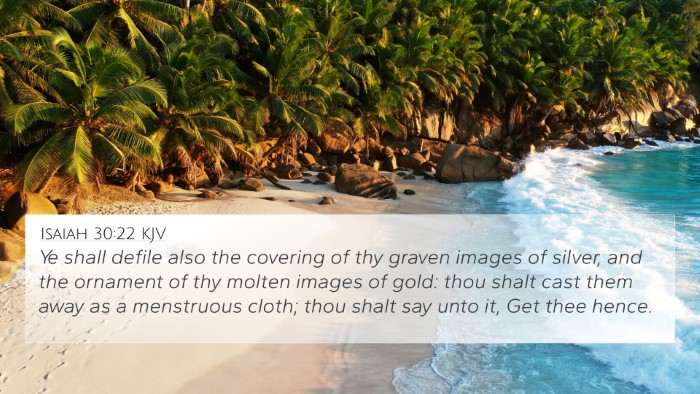Understanding Deuteronomy 7:26
Deuteronomy 7:26 states: "Neither shalt thou bring an abomination into thine house, lest thou be a cursed thing like it: but thou shalt utterly detest it, and thou shalt utterly abhor it; for it is a cursed thing." This verse serves as a profound warning against the dangers of idolatry and the contamination of the sacred.
Contextual Background
This scripture is situated within the broader context of Moses' instructions to the Israelites as they prepare to enter the Promised Land. The surrounding chapters emphasize the importance of maintaining holiness and separating from practices that are abhorrent to God.
Interpretation from Public Domain Commentaries
-
Matthew Henry: Henry underscores the significance of avoiding anything that may lead to spiritual compromise. He notes that bringing an abomination into one’s house symbolizes a deeper relational compromise with God. The text reflects the importance of purity in worship and living.
-
Albert Barnes: Barnes highlights that the “abomination” referred to indicates false gods and the images associated with them. He explains that such items are not just physical objects but represent a spiritual peril that can lead to God’s judgment upon the individual and community.
-
Adam Clarke: Clarke draws attention to the moral imperative of detesting idolatrous practices. He states that to bring such things into one’s home reflects negligence of God’s commandments and brings about collective consequences for the entire community.
Thematic Connections and Cross-References
Deuteronomy 7:26 can be deeply explored through various thematic connections and cross-references, enriching our understanding of its implications within the Bible:
- Exodus 20:4-5: This passage warns against the making of graven images and reflects on God's jealousy regarding worship.
- 2 Corinthians 6:17: Paul calls believers to come out from among the unclean and to separate themselves, resonating with the warning in Deuteronomy about abominations.
- Isaiah 42:8: God emphasizes His jealousy over idols; He will not share His glory with another.
- Revelation 21:8: The fate of the cowardly, faithless, detestable, and idolaters serves as a severe warning about the consequences of neglecting spiritual purity.
- Galatians 5:19-21: Here, idols are connected with works of the flesh, further showcasing the spiritual impact of idolatry.
- Psalms 31:6: The Psalmist reflects a detestation of false gods, aligning with the instruction to denounce abominations.
- 1 John 5:21: The apostolic exhortation to keep away from idols reaffirms the ongoing significance of this warning.
Applying the Verse Today
For contemporary believers, Deuteronomy 7:26 serves as a reminder to examine what we allow into our lives—be it physical items, ideologies, or even relationships. It encourages an active rejection of those influences that conflict with our faith and highlights the call to pursue holiness.
Practical Steps for Engagement
Engaging with this scripture can involve:
- Regular self-examination: Assess what influences you are allowing into your home and life.
- Prayer for discernment: Seek wisdom to recognize and reject any influence that does not honor God.
- Studying scripture: Utilize a Bible concordance or Bible cross-reference guide to deepen your understanding of related themes.
- Engagement in community: Discuss with others the implications of this verse and how to apply it in a modern context.
Conclusion
Overall, Deuteronomy 7:26 challenges believers to uphold God’s standards by avoiding contamination from the world. By utilizing tools for bible cross-referencing and exploring the connections between Bible verses, we can enrich our biblical knowledge and enhance our spiritual growth.














